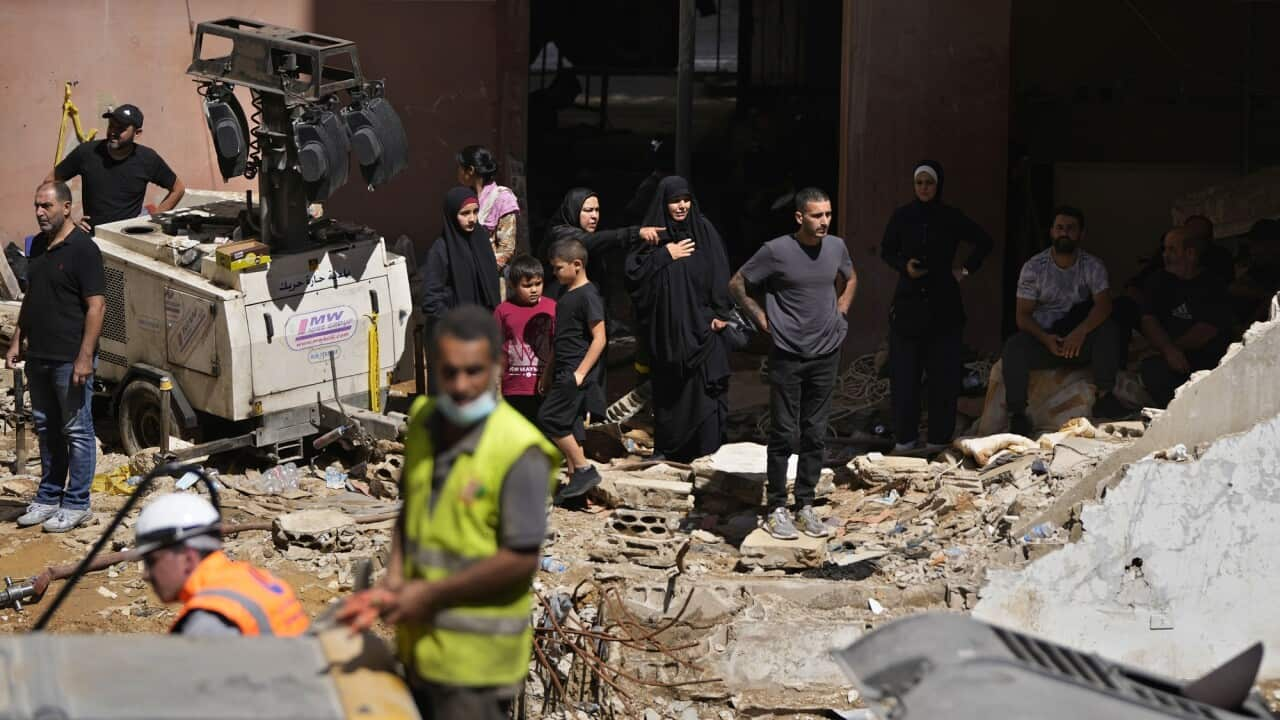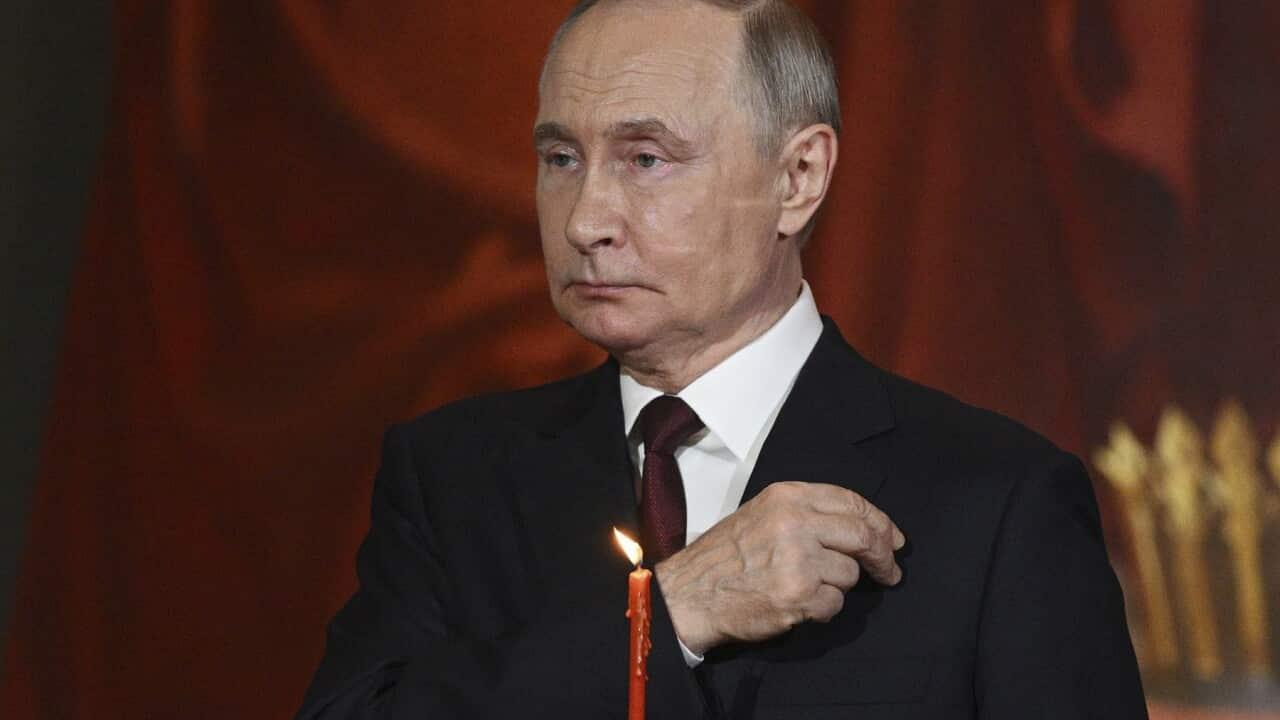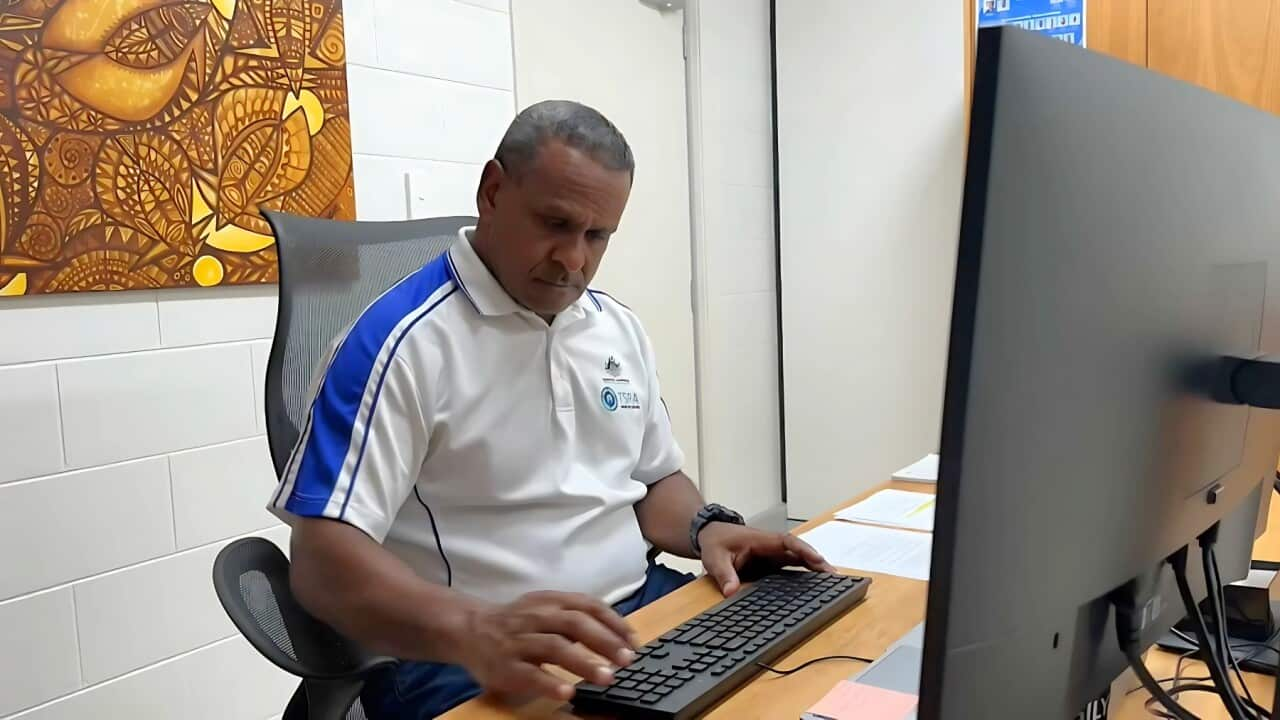TRANSCRIPT
(Sounds of car horns)
Traffic jams as thousands of families fled the south and the east of Lebanon after Israel struck 1300 targets across the country.
The attack left hundreds dead and many more injured.
It's the highest daily death toll in almost a year of cross-border exchanges between Israel and Hezbollah, following the October 7 Hamas attack.
It is also deadliest day of conflict since the 2006 Israel-Hezbollah war.
Journalist Evangelo Sipsas, a correspondent for the China Global Television Network, joined the tens of thousands of people fleeing southern Lebanon.
"We're leaving as well, because we were caught in that barrage of exchange of rockets between Hezbollah and Israel. Israel has been targeting southern Lebanon for quite a few hours since the early morning of Monday, with hundreds of rockets and with their airplanes over in southern Lebanon, against hundreds of positions of Hezbollah, that's what the IDF has been saying."
Before the attacks, Israeli Prime Minister Benjamin Netanyahu issued a video warning urging people to leave the area.
"I have a message for the people of Lebanon. Israel's war is not with you, it's with Hezbollah. For too long, Hezbollah has been using you as human shields. To defend our people against Hezbollah strikes, we must take out these weapons. Starting this morning, the IDF has warned you to get out of harm's way. I urge you – take this warning seriously. Don't let Hezbollah endanger your lives and the lives of your loved ones. Don't let Hezbollah endanger Lebanon. Please, get out of harm's way now."
Still reeling from a deadly attack on communication devices last week, Hezbollah's deputy leader, Naim Qassem, says conflict with Israel has now entered a "new phase" and is an "open-ended battle or reckoning".
The Israeli military says its not backing down.
Spokesman Rear Admiral Daniel Hagari says the army will do "whatever is necessary" to push Hezbollah from Lebanon's border with Israel.
Speaking to journalists in New York while attending the UN General Assembly, Iran's President, Masoud Pezeshkian, says Israel is provoking Iran to join the conflict in support of Hezbollah.
Also in New York, at the United Nations, is Lebanese member of parliament Dr Bahia el-Hariri.
She says the conflict with Israel is destroying her country.
"Prime Minister Najib Mikati is working with the government teams to deal with the aggression that we are victim to at all levels, diplomatic, humanitarian, health, security, and also in terms of people's livelihoods. We're seeing a wave of exodus and seeing residential areas being targeted following the massacre that killed more than 3,000 people citizens in Beirut and the Bekaa."
With world leaders attending the UN General Assembly, the spotlight has been on what diplomatic pressure can be applied to de-escalate the situation.
Australian Foreign Minister Senator Penny Wong says further escalation must be avoided.
"We are deeply concerned. We are alarmed by the escalation - and the loss of civilian life - both in Lebanon and also the attacks into Israel. We have consistently said we wish to see a de-escalation. We believe a wider regional conflict is not in the interest of any of the peoples of the region."
Foreign nationals, including Australians still in Lebanon are being urged to evacuate.
Ms Wong says for months now the federal government has urged Australian citizens to leave Lebanon.
"The numbers of Australians in Lebanon are beyond the capacity of the government to provide assistance to all. They are very large numbers of Australians in Lebanon, which is why we say again to any Australian who is in Lebanon - what we have been saying for months. Which is: you should return home as soon as you are able to, while commercial options are still available, if they are."
Australian Lebanese Association President Raymond Najar told SBS, it has been devastating to see the spillover of the conflict result in even more loss of civilian life.
"Lebanon can ill afford the devastation that occurred in 2006 again when a lot of the major infrastructure, the power systems and so forth were destroyed and that has to once again to be rebuilt. Israel doesn't play those rules - and it can actually devastate anywhere it likes. Even the flyovers at breakneck speeds causing children to be scared out of their wits woken up out of their sleep. Shattering the windows of the homes in the valleys - even in the mountains."
He says he supports the call for Australians in Lebanon to evacuate - but adds the Lebanese-Australian community wants to see the Australian government take a stronger position to pressure Israel to stop its military operations.
"The only thing the Australian government can do because I believe we here as a major population in this country really have our hands tied. We are not able to physically change what goes on in that part of the world. But our government must put more pressure on their American ally to bring Israel into line with the norms of warfare, with the norms of humanity, the norms of compassion on treating other people."
In Gaza, more casualties of the war between Hamas and Israel are rushed to hospital.
(The sound of ambulance sirens)
And a funeral for a mother and her four small children who were killed when an Israeli airstrike hit their home in Deir al-Balah.
Their bodies wrapped in hospital sheets - makeshift shrouds for burial.
In Gaza, Ali Ahmed, says nowhere is safe
"The occupation's message to us is that there is no safe place in the Gaza Strip, no shelters or places that contain the displaced, and our message to the occupation is that all the massacres it commits against children and women only make us stronger, more determined and more resolve."
The number of Palestinians killed in almost a year of military offensives launched by Israel in Gaza has surpassed 41,000.
Around 1200 people were killed during the October 7 Hamas attack.













